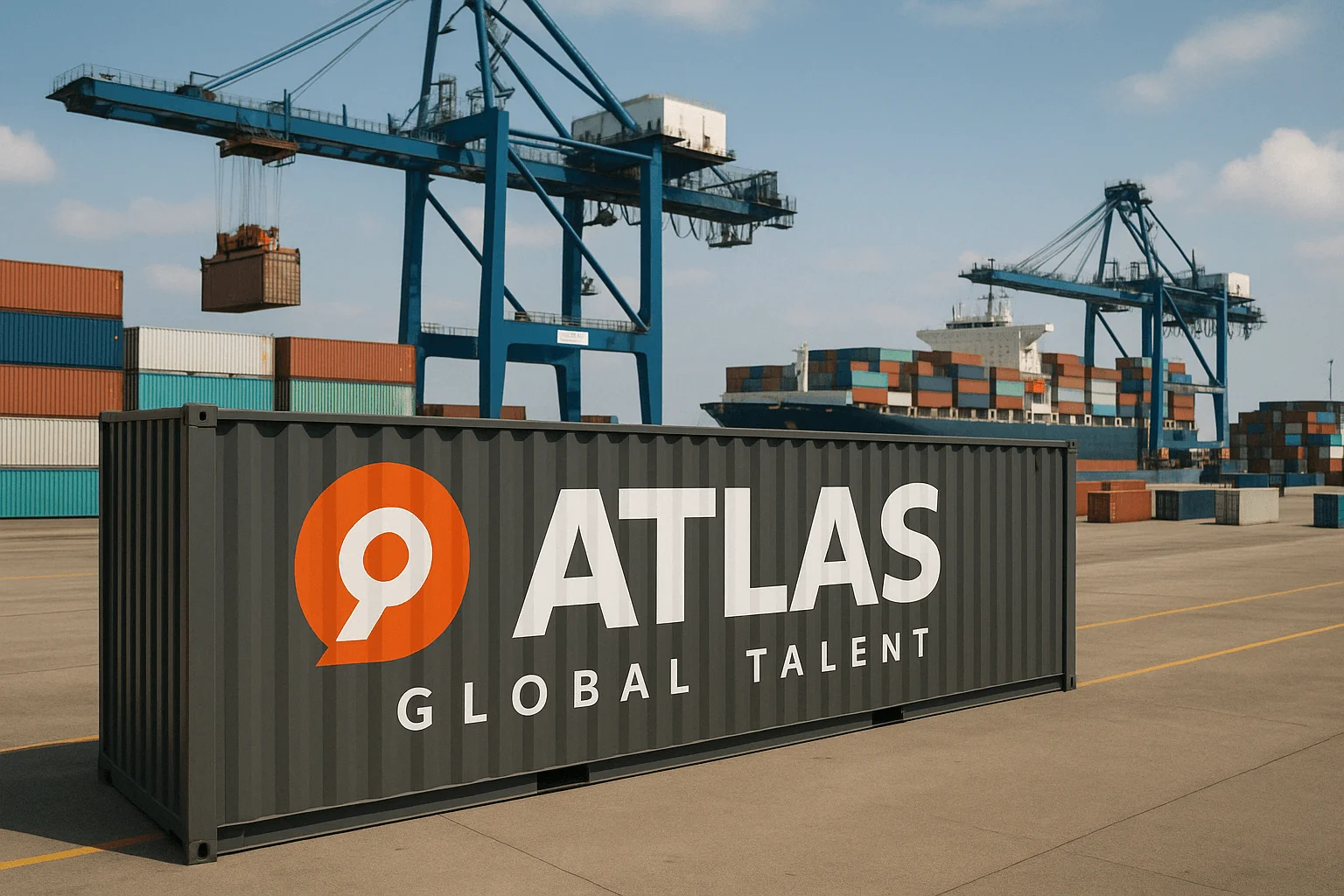Trump Tariff Causing Global Freight Disruptions
Wednesday, April 16, 2025

Other News
-
-
The Rise of Road Freight in Asia and What It Means for Recruitment
Wednesday, April 16, 2025
-
Air Freight in the USA and What It Means for Hiring
Wednesday, April 16, 2025
-
Growth in Freight Demand and Hiring Across Mexico City’s Expanding Logistics Sector
Wednesday, April 16, 2025
-
Montreal Freight Activity and the Demand for Skilled Sales Professionals
Wednesday, April 16, 2025
-
Freight Movement and Hiring Trends in the Atlanta Logistics Market
Wednesday, April 16, 2025
-
How to Recruit Top Logistics Sales Professionals in Los Angeles
Wednesday, April 16, 2025
-
Recruiting Logistics Sales Professionals in Chicago’s Competitive Market
Wednesday, April 16, 2025
-
Recruitment Struggles in the USA as Budgets Tighten and Confidence Wavers
Wednesday, April 16, 2025
-
UK and European Road Freight Trends and Challenges
Wednesday, April 16, 2025
-
Global Supply Chain Struggles and How Businesses Are Adapting
Wednesday, April 16, 2025
-
Logistics Business Development Recruitment in New York
Wednesday, April 16, 2025
-
Global Ocean Freight and Supply Chain Pressures
Wednesday, April 16, 2025
-
Transpacific Cargo Movements from the USA
Wednesday, April 16, 2025
-
Logistics Sales Recruitment in Florida
Wednesday, April 16, 2025
-
Strategies for a Changing Workforce
Wednesday, April 16, 2025
-
Why Contract Recruitment Is Gaining Ground in Logistics and Freight
Sunday, April 13, 2025
-
The Real Cost of a Bad Logistics Sales Hire
Friday, April 11, 2025
-
Why Freight Operations Managers Are in High Demand Globally
Tuesday, March 4, 2025
How Tariffs Are Reshaping Supply Chains
Tariffs introduced by the United States in recent months have created major disruption across multiple global trade routes. Businesses that rely on predictable import and export flows have been forced to reevaluate sourcing strategies, contract terms, and logistics plans. This latest wave of tariffs—largely aimed at countries like China and targeting goods ranging from steel and technology to consumer products—has caused costs to rise and transit schedules to shift.
Manufacturers in the U.S. are now finding it more expensive to import components needed for assembly or production. In turn, this is driving up the cost of finished goods or slowing down production altogether. For many companies, the knock-on effect has been delays, stock shortages, and the need to source materials from alternative suppliers in other regions like Southeast Asia or South America.
At the same time, exporters are grappling with retaliation tariffs imposed by other countries. These measures are cutting off once-stable demand from international buyers, forcing American producers—especially in agriculture and heavy industry—to rethink where and how they sell their goods abroad.
Impact on Logistics and Freight Movement
Tariff disruption is hitting the freight industry hard. The changes in sourcing and destination points mean logistics providers are dealing with re-routed shipments, unpredictable cargo volumes, and new clearance procedures at customs. This has increased the administrative workload and made accurate forecasting more difficult for freight forwarders and 3PLs.
Increased container dwell times at ports are another side effect. With more shipments under scrutiny and more paperwork required, delays are compounding. For time-sensitive cargo like perishables, these issues can mean spoilage, rejected shipments, or heavy financial losses for exporters.
Air freight has also seen a spike in demand, particularly for industries that can't afford supply interruptions—such as electronics, medical supplies, and automotive components. While this provides an opportunity for carriers, it also puts pressure on capacity and pricing, especially out of major U.S. gateways like Chicago, Dallas, and Los Angeles.
Business Adaptation Strategies
Businesses are responding by diversifying their supply chains. Some are shifting procurement to lower-risk countries, while others are investing in dual sourcing models to reduce dependency on any single supplier or region. For larger companies, nearshoring—bringing production closer to North America—is gaining momentum, especially in sectors where speed to market is a competitive advantage.
Digitisation is also playing a critical role. Companies are increasingly using real-time tracking tools, demand forecasting software, and customs automation systems to gain better control and visibility over cargo. The ability to quickly identify delays, reroute freight, or rebook capacity is helping to offset some of the unpredictability introduced by tariffs.
What’s clear is that the businesses coping best with tariff disruption are those who’ve built flexibility into their logistics networks. Static, linear supply chains are proving too fragile under the weight of constant regulatory changes. Agility, data visibility, and expert logistics support are now core to staying competitive in an environment where trade policy can change overnight.
At Atlas Global Talent, we support freight forwarders, logistics providers, and global shippers by helping them hire the right people to manage this complexity. Whether you're restructuring your compliance department, building a global trade team, or reinforcing your supply chain operations, we connect you with experienced professionals who understand the realities of international logistics. Our recruitment reach covers the UK, Europe, USA, Canada, LATAM, and Asia—so wherever you're navigating tariff disruption, we’ve got the talent to help.

